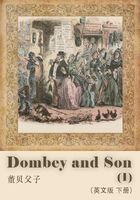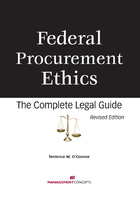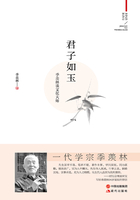Philip and Sylvia were engaged. It was not so happy a state of things as Philip had imagined. He had already found that out, although it was not twenty-four hours since Sylvia had promised to be his. He could not have defined why he was dissatisfied; if he had been compelled to account for his feeling, he would probably have alleged as a reason that Sylvia's manner was so unchanged by her new position towards him. She was quiet and gentle; but no shyer, no brighter, no coyer, no happier, than she had been for months before. When she joined him at the field-gate, his heart was beating fast, his eyes were beaming out love at her approach. She neither blushed nor smiled, but seemed absorbed in thought of some kind. But she resisted his silent effort to draw her away from the path leading to the house, and turned her face steadily homewards. He murmured soft words, which she scarcely heard. Right in their way was the stone trough for the fresh bubbling water, that, issuing from a roadside spring, served for all the household purposes of Haytersbank Farm. By it were the milk-cans, glittering and clean. Sylvia knew she should have to stop for these, and carry them back home in readiness for the evening's milking; and at this time, during this action, she resolved to say what was on her mind.
They were there. Sylvia spoke.
'Philip, Kester has been saying as how it might ha' been——'
'Well!' said Philip.
Sylvia sate down on the edge of the trough, and dipped her hot little hand in the water. Then she went on quickly, and lifting her beautiful eyes to Philip's face, with a look of inquiry—'He thinks as Charley Kinraid may ha' been took by t' press-gang.'
It was the first time she had named the name of her former lover to her present one since the day, long ago now, when they had quarrelled about him; and the rosy colour flushed her all over; but her sweet, trustful eyes never flinched from their steady, unconscious gaze.
Philip's heart stopped beating; literally, as if he had come to a sudden precipice, while he had thought himself securely walking on sunny greensward. He went purple all over from dismay; he dared not take his eyes away from that sad, earnest look of hers, but he was thankful that a mist came before them and drew a veil before his brain. He heard his own voice saying words he did not seem to have framed in his own mind.
'Kester's a d—d fool,' he growled.
'He says there's mebbe but one chance i' a hundred,' said Sylvia, pleading, as it were, for Kester; 'but oh! Philip, think yo' there's just that one chance?'
'Ay, there's a chance, sure enough,' said Philip, in a kind of fierce despair that made him reckless what he said or did. 'There's a chance, I suppose, for iverything i' life as we have not seen with our own eyes as it may not ha' happened. Kester may say next as there's a chance as your father is not dead, because we none on us saw him——'
'Hung,' he was going to have said, but a touch of humanity came back into his stony heart. Sylvia sent up a little sharp cry at his words. He longed at the sound to take her in his arms and hush her up, as a mother hushes her weeping child. But the very longing, having to be repressed, only made him more beside himself with guilt, anxiety, and rage. They were quite still now. Sylvia looking sadly down into the bubbling, merry, flowing water: Philip glaring at her, wishing that the next word were spoken, though it might stab him to the heart. But she did not speak.
At length, unable to bear it any longer, he said, 'Thou sets a deal o' store on that man, Sylvie.'
If 'that man' had been there at the moment, Philip would have grappled with him, and not let go his hold till one or the other were dead. Sylvia caught some of the passionate meaning of the gloomy, miserable tone of Philip's voice as he said these words. She looked up at him.
'I thought yo' knowed that I cared a deal for him.'
There was something so pleading and innocent in her pale, troubled face, so pathetic in her tone, that Philip's anger, which had been excited against her, as well as against all the rest of the world, melted away into love; and once more he felt that have her for his own he must, at any cost. He sate down by her, and spoke to her in quite a different manner to that which he had used before, with a ready tact and art which some strange instinct or tempter 'close at his ear' supplied.
'Yes, darling, I knew yo' cared for him. I'll not say ill of him that is—dead—ay, dead and drowned—whativer Kester may say—before now; but if I chose I could tell tales.'
'No! tell no tales; I'll not hear them,' said she, wrenching herself out of Philip's clasping arm. 'They may misca' him for iver, and I'll not believe 'em.'
'I'll niver miscall one who is dead,' said Philip; each new unconscious sign of the strength of Sylvia's love for her former lover only making him the more anxious to convince her that he was dead, only rendering him more keen at deceiving his own conscience by repeating to it the lie that long ere this Kinraid was in all probability dead—killed by either the chances of war or tempestuous sea; that, even if not, he was as good as dead to her; so that the word 'dead' might be used in all honest certainty, as in one of its meanings Kinraid was dead for sure.
'Think yo' that if he were not dead he wouldn't ha' written ere this to some one of his kin, if not to thee? Yet none of his folk Newcassel-way but believe him dead.'
'So Kester says,' sighed Sylvia.
Philip took heart. He put his arm softly round her again, and murmured—
'My lassie, try not to think on them as is gone, as is dead, but t' think a bit more on him as loves yo' wi' heart, and soul, and might, and has done iver sin' he first set eyes on yo'. Oh, Sylvie, my love for thee is just terrible.'
At this moment Dolly Reid was seen at the back-door of the farmhouse, and catching sight of Sylvia, she called out—
'Sylvia, thy mother is axing for thee, and I cannot make her mind easy.'
In a moment Sylvia had sprung up from her seat, and was running in to soothe and comfort her mother's troubled fancies.
Philip sate on by the well-side, his face buried in his two hands. Presently he lifted himself up, drank some water eagerly out of his hollowed palm, sighed, and shook himself, and followed his cousin into the house. Sometimes he came unexpectedly to the limits of his influence over her. In general she obeyed his expressed wishes with gentle indifference, as if she had no preferences of her own; once or twice he found that she was doing what he desired out of the spirit of obedience, which, as her mother's daughter, she believed to be her duty towards her affianced husband. And this last motive for action depressed her lover more than anything. He wanted the old Sylvia back again; captious, capricious, wilful, haughty, merry, charming. Alas! that Sylvia was gone for ever.
But once especially his power, arising from whatever cause, was stopped entirely short—was utterly of no avail.
It was on the occasion of Dick Simpson's mortal illness. Sylvia and her mother kept aloof from every one. They had never been intimate with any family but the Corneys, and even this friendship had considerably cooled since Molly's marriage, and most especially since Kinraid's supposed death, when Bessy Corney and Sylvia had been, as it were, rival mourners. But many people, both in Monkshaven and the country round about, held the Robson family in great respect, although Mrs. Robson herself was accounted 'high' and 'distant;' and poor little Sylvia, in her heyday of beautiful youth and high spirits, had been spoken of as 'a bit flighty,' and 'a set-up lassie.' Still, when their great sorrow fell upon them, there were plenty of friends to sympathize deeply with them; and, as Daniel had suffered in a popular cause, there were even more who, scarcely knowing them personally, were ready to give them all the marks of respect and friendly feeling in their power. But neither Bell nor Sylvia were aware of this. The former had lost all perception of what was not immediately before her; the latter shrank from all encounters of any kind with a sore heart, and sensitive avoidance of everything that could make her a subject of remark. So the poor afflicted people at Haytersbank knew little of Monkshaven news. What little did come to their ears came through Dolly Reid, when she returned from selling the farm produce of the week; and often, indeed, even then she found Sylvia too much absorbed in other cares or thoughts to listen to her gossip. So no one had ever named that Simpson was supposed to be dying till Philip began on the subject one evening. Sylvia's face suddenly flashed into glow and life.
'He's dying, is he? t' earth is well rid on such a fellow!'
'Eh, Sylvie, that's a hard speech o' thine!' said Philip; 'it gives me but poor heart to ask a favour of thee!'
'If it's aught about Simpson,' replied she, and then she interrupted herself. 'But say on; it were ill-mannered in me for t' interrupt yo'.'
'Thou would be sorry to see him, I think, Sylvie. He cannot get over the way, t' folk met him, and pelted him when he came back fra' York,—and he's weak and faint, and beside himself at times; and he'll lie a dreaming, and a-fancying they're all at him again, hooting, and yelling, and pelting him.'
'I'm glad on 't,' said Sylvia; 'it's t' best news I've heered for many a day,—he, to turn again' feyther, who gave him money fo t' get a lodging that night, when he'd no place to go to. It were his evidence as hung feyther; and he's rightly punished for it now.'
'For a' that,—and he's done a vast o' wrong beside, he's dying now, Sylvie!'
'Well! let him die—it's t' best thing he could do!'
'But he's lying i' such dree poverty,—and niver a friend to go near him,—niver a person to speak a kind word t' him.'
'It seems as yo've been speaking wi' him, at any rate,' said Sylvia, turning round on Philip.
'Ay. He sent for me by Nell Manning, th' old beggar-woman, who sometimes goes in and makes his bed for him, poor wretch,—he's lying in t' ruins of th' cow-house of th' Mariners' Arms, Sylvie.'
'Well!' said she, in the same hard, dry tone.
'And I went and fetched th' parish doctor, for I thought he'd ha' died before my face,—he was so wan, and ashen-grey, so thin, too, his eyes seem pushed out of his bony face.'
'That last time—feyther's eyes were starting, wild-like, and as if he couldn't meet ours, or bear the sight on our weeping.'
It was a bad look-out for Philip's purpose; but after a pause he went bravely on.
'He's a poor dying creature, anyhow. T' doctor said so, and told him he hadn't many hours, let alone days, to live.'
'And he'd shrink fra' dying wi' a' his sins on his head?' said Sylvia, almost exultingly.
Philip shook his head. 'He said this world had been too strong for him, and men too hard upon him; he could niver do any good here, and he thought he should, maybe, find folks i' t' next place more merciful.'
'He'll meet feyther theere,' said Sylvia, still hard and bitter.
'He's a poor ignorant creature, and doesn't seem to know rightly who he's like to meet; only he seems glad to get away fra' Monkshaven folks; he were really hurt, I am afeared, that night, Sylvie,—and he speaks as if he'd had hard times of it ever since he were a child,—and he talks as if he were really grieved for t' part t' lawyers made him take at th' trial,—they made him speak, against his will, he says.'
'Couldn't he ha' bitten his tongue out?' asked Sylvia. 'It's fine talking o' sorrow when the thing is done!'
'Well, anyhow he's sorry now; and he's not long for to live. And, Sylvie, he bid me ask thee, if, for the sake of all that is dear to thee both here, and i' th' world to come, thou'd go wi' me, and just say to him that thou forgives him his part that day.'
'He sent thee on that errand, did he? And thou could come and ask me? I've a mind to break it off for iver wi' thee, Philip.' She kept gasping, as if she could not say any more. Philip watched and waited till her breath came, his own half choked.
'Thee and me was niver meant to go together. It's not in me to forgive,—I sometimes think it's not in me to forget. I wonder, Philip, if thy feyther had done a kind deed—and a right deed—and a merciful deed—and some one as he'd been good to, even i' t' midst of his just anger, had gone and let on about him to th' judge, as was trying to hang him,—and had getten him hanged,—hanged dead, so that his wife were a widow, and his child fatherless for ivermore,—I wonder if thy veins would run milk and water, so that thou could go and make friends, and speak soft wi' him as had caused thy feyther's death?'
'It's said in t' Bible, Sylvie, that we're to forgive.'
'Ay, there's some things as I know I niver forgive; and there's others as I can't—and I won't, either.'
'But, Sylvie, yo' pray to be forgiven your trespasses, as you forgive them as trespass against you.'
'Well, if I'm to be taken at my word, I'll noane pray at all, that's all. It's well enough for them as has but little to forgive to use them words; and I don't reckon it's kind, or pretty behaved in yo', Philip, to bring up Scripture again' me. Thou may go about thy business.'
'Thou'rt vexed with me, Sylvie; and I'm not meaning but that it would go hard with thee to forgive him; but I think it would be right and Christian-like i' thee, and that thou'd find thy comfort in thinking on it after. If thou'd only go, and see his wistful eyes—I think they'd plead wi' thee more than his words, or mine either.'
'I tell thee my flesh and blood wasn't made for forgiving and forgetting. Once for all, thou must take my word. When I love I love, and when I hate I hate; and him as has done hard to me, or to mine, I may keep fra' striking or murdering, but I'll niver forgive. I should be just a monster, fit to be shown at a fair, if I could forgive him as got feyther hanged.'
Philip was silent, thinking what more he could urge.
'Yo'd better be off,' said Sylvia, in a minute or two. 'Yo' and me has got wrong, and it'll take a night's sleep to set us right. Yo've said all yo' can for him; and perhaps it's not yo' as is to blame, but yo'r nature. But I'm put out wi' thee, and want thee out o' my sight for awhile.'
One or two more speeches of this kind convinced him that it would be wise in him to take her at her word. He went back to Simpson, and found him, though still alive, past the understanding of any words of human forgiveness. Philip had almost wished he had not troubled or irritated Sylvia by urging the dying man's request: the performance of this duty seemed now to have been such a useless office.
After all, the performance of a duty is never a useless office, though we may not see the consequences, or they may be quite different to what we expected or calculated on. In the pause of active work, when daylight was done, and the evening shades came on, Sylvia had time to think; and her heart grew sad and soft, in comparison to what it had been when Philip's urgency had called out all her angry opposition. She thought of her father—his sharp passions, his frequent forgiveness, or rather his forgetfulness that he had even been injured. All Sylvia's persistent or enduring qualities were derived from her mother, her impulses from her father. It was her dead father whose example filled her mind this evening in the soft and tender twilight. She did not say to herself that she would go and tell Simpson that she forgave him; but she thought that if Philip asked her again that she should do so.
But when she saw Philip again he told her that Simpson was dead; and passed on from what he had reason to think would be an unpleasant subject to her. Thus he never learnt how her conduct might have been more gentle and relenting than her words—words which came up into his memory at a future time, with full measure of miserable significance.
In general, Sylvia was gentle and good enough; but Philip wanted her to be shy and tender with him, and this she was not. She spoke to him, her pretty eyes looking straight and composedly at him. She consulted him like the family friend that he was: she met him quietly in all the arrangements for the time of their marriage, which she looked upon more as a change of home, as the leaving of Haytersbank, as it would affect her mother, than in any more directly personal way. Philip was beginning to feel, though not as yet to acknowledge, that the fruit he had so inordinately longed for was but of the nature of an apple of Sodom.
Long ago, lodging in widow Rose's garret, he had been in the habit of watching some pigeons that were kept by a neighbour; the flock disported themselves on the steep tiled roofs just opposite to the attic window, and insensibly Philip grew to know their ways, and one pretty, soft little dove was somehow perpetually associated in his mind with his idea of his cousin Sylvia. The pigeon would sit in one particular place, sunning herself, and puffing out her feathered breast, with all the blue and rose-coloured lights gleaming in the morning rays, cooing softly to herself as she dressed her plumage. Philip fancied that he saw the same colours in a certain piece of shot silk—now in the shop; and none other seemed to him so suitable for his darling's wedding-dress. He carried enough to make a gown, and gave it to her one evening, as she sate on the grass just outside the house, half attending to her mother, half engaged in knitting stockings for her scanty marriage outfit. He was glad that the sun was not gone down, thus allowing him to display the changing colours in fuller light. Sylvia admired it duly; even Mrs. Robson was pleased and attracted by the soft yet brilliant hues. Philip whispered to Sylvia—(he took delight in whispers,—she, on the contrary, always spoke to him in her usual tone of voice)—
'Thou'lt look so pretty in it, sweetheart,—o' Thursday fortnight!'
'Thursday fortnight. On the fourth yo're thinking on. But I cannot wear it then,—I shall be i' black.'
'Not on that day, sure!' said Philip.
'Why not? There's nought t' happen on that day for t' make me forget feyther. I couldn't put off my black, Philip,—no, not to save my life! Yon silk is just lovely, far too good for the likes of me,—and I'm sure I'm much beholden to yo'; and I'll have it made up first of any gown after last April come two years,—but, oh, Philip, I cannot put off my mourning!'
'Not for our wedding-day!' said Philip, sadly.
'No, lad, I really cannot. I'm just sorry about it, for I see thou'rt set upon it; and thou'rt so kind and good, I sometimes think I can niver be thankful enough to thee. When I think on what would ha' become of mother and me if we hadn't had thee for a friend i' need, I'm noane ungrateful, Philip; tho' I sometimes fancy thou'rt thinking I am.'
'I don't want yo' to be grateful, Sylvie,' said poor Philip, dissatisfied, yet unable to explain what he did want; only knowing that there was something he lacked, yet fain would have had.
As the marriage-day drew near, all Sylvia's care seemed to be for her mother; all her anxiety was regarding the appurtenances of the home she was leaving. In vain Philip tried to interest her in details of his improvements or contrivances in the new home to which he was going to take her. She did not tell him; but the idea of the house behind the shop was associated in her mind with two times of discomfort and misery. The first time she had gone into the parlour about which Philip spoke so much was at the time of the press-gang riot, when she had fainted from terror and excitement; the second was on that night of misery when she and her mother had gone in to Monkshaven, to bid her father farewell before he was taken to York; in that room, on that night, she had first learnt something of the fatal peril in which he stood. She could not show the bright shy curiosity about her future dwelling that is common enough with girls who are going to be married. All she could do was to restrain herself from sighing, and listen patiently, when he talked on the subject. In time he saw that she shrank from it; so he held his peace, and planned and worked for her in silence,—smiling to himself as he looked on each completed arrangement for her pleasure or comfort; and knowing well that her happiness was involved in what fragments of peace and material comfort might remain to her mother.
The wedding-day drew near apace. It was Philip's plan that after they had been married in Kirk Moorside church, he and his Sylvia, his cousin, his love, his wife, should go for the day to Robin Hood's Bay, returning in the evening to the house behind the shop in the market-place. There they were to find Bell Robson installed in her future home; for Haytersbank Farm was to be given up to the new tenant on the very day of the wedding. Sylvia would not be married any sooner; she said that she must stay there till the very last; and had said it with such determination that Philip had desisted from all urgency at once.
He had told her that all should be settled for her mother's comfort during their few hours' absence; otherwise Sylvia would not have gone at all. He told her he should ask Hester, who was always so good and kind—who never yet had said him nay, to go to church with them as bridesmaid—for Sylvia would give no thought or care to anything but her mother—and that they would leave her at Haytersbank as they returned from church; she would manage Mrs Robson's removal—she would do this—do that—do everything. Such friendly confidence had Philip in Hester's willingness and tender skill. Sylvia acquiesced at length, and Philip took upon himself to speak to Hester on the subject.
'Hester,' said he, one day when he was preparing to go home after the shop was closed; 'would yo' mind stopping a bit? I should like to show yo' the place now it's done up; and I've a favour to ask on yo' besides.' He was so happy he did not see her shiver all over. She hesitated just a moment before she answered,—
'I'll stay, if thou wishes it, Philip. But I'm no judge o' fashions and such like.'
'Thou'rt a judge o' comfort, and that's what I've been aiming at. I were niver so comfortable in a' my life as when I were a lodger at thy house,' said he, with brotherly tenderness in his tone. 'If my mind had been at ease I could ha' said I niver were happier in all my days than under thy roof; and I know it were thy doing for the most part. So come along, Hester, and tell me if there's aught more I can put in for Sylvie.'
It might not have been a very appropriate text, but such as it was the words, 'From him that would ask of thee turn not thou away,' seemed the only source of strength that could have enabled her to go patiently through the next half-hour. As it was, she unselfishly brought all her mind to bear upon the subject; admired this, thought and decided upon that, as one by one Philip showed her all his alterations and improvements. Never was such a quiet little bit of unconscious and unrecognized heroism. She really ended by such a conquest of self that she could absolutely sympathize with the proud expectant lover, and had quenched all envy of the beloved, in sympathy with the delight she imagined Sylvia must experience when she discovered all these proofs of Philip's fond consideration and care. But it was a great strain on the heart, that source of life; and when Hester returned into the parlour, after her deliberate survey of the house, she felt as weary and depressed in bodily strength as if she had gone through an illness of many days. She sate down on the nearest chair, and felt as though she never could rise again. Philip, joyous and content, stood near her talking.
'And, Hester,' said he, 'Sylvie has given me a message for thee—she says thou must be her bridesmaid—she'll have none other.'
'I cannot,' said Hester, with sudden sharpness.
'Oh, yes, but yo' must. It wouldn't be like my wedding if thou wasn't there: why I've looked upon thee as a sister iver since I came to lodge with thy mother.'
Hester shook her head. Did her duty require her not to turn away from this asking, too? Philip saw her reluctance, and, by intuition rather than reason, he knew that what she would not do for gaiety or pleasure she would consent to, if by so doing she could render any service to another. So he went on.
'Besides, Sylvie and me has planned to go for our wedding jaunt to Robin Hood's Bay. I ha' been to engage a shandry this very morn, before t' shop was opened; and there's no one to leave wi' my aunt. Th' poor old body is sore crushed with sorrow; and is, as one may say, childish at times; she's to come down here, that we may find her when we come back at night; and there's niver a one she'll come with so willing and so happy as with thee, Hester. Sylvie and me has both said so.'
Hester looked up in his face with her grave honest eyes.
'I cannot go to church wi' thee, Philip; and thou must not ask me any further. But I'll go betimes to Haytersbank Farm, and I'll do my best to make the old lady happy, and to follow out thy directions in bringing her here before nightfall.'
Philip was on the point of urging her afresh to go with them to church; but something in her eyes brought a thought across his mind, as transitory as a breath passes over a looking-glass, and he desisted from his entreaty, and put away his thought as a piece of vain coxcombry, insulting to Hester. He passed rapidly on to all the careful directions rendered necessary by her compliance with the latter part of his request, coupling Sylvia's name with his perpetually; so that Hester looked upon her as a happy girl, as eager in planning all the details of her marriage as though no heavy shameful sorrow had passed over her head not many months ago.
Hester did not see Sylvia's white, dreamy, resolute face, that answered the solemn questions of the marriage service in a voice that did not seem her own. Hester was not with them to notice the heavy abstraction that made the bride as if unconscious of her husband's loving words, and then start and smile, and reply with a sad gentleness of tone. No! Hester's duty lay in conveying the poor widow and mother down from Haytersbank to the new home in Monkshaven; and for all Hester's assistance and thoughtfulness, it was a dreary, painful piece of work—the poor old woman crying like a child, with bewilderment at the confused bustle which, in spite of all Sylvia's careful forethought, could not be avoided on this final day, when her mother had to be carried away from the homestead over which she had so long presided. But all this was as nothing to the distress which overwhelmed poor Bell Robson when she entered Philip's house; the parlour—the whole place so associated with the keen agony she had undergone there, that the stab of memory penetrated through her deadened senses, and brought her back to misery. In vain Hester tried to console her by telling her the fact of Sylvia's marriage with Philip in every form of words that occurred to her. Bell only remembered her husband's fate, which filled up her poor wandering mind, and coloured everything; insomuch that Sylvia not being at hand to reply to her mother's cry for her, the latter imagined that her child, as well as her husband, was in danger of trial and death, and refused to be comforted by any endeavour of the patient sympathizing Hester. In a pause of Mrs Robson's sobs, Hester heard the welcome sound of the wheels of the returning shandry, bearing the bride and bridegroom home. It stopped at the door—an instant, and Sylvia, white as a sheet at the sound of her mother's wailings, which she had caught while yet at a distance, with the quick ears of love, came running in; her mother feebly rose and tottered towards her, and fell into her arms, saying, 'Oh! Sylvie, Sylvie, take me home, and away from this cruel place!'
Hester could not but be touched with the young girl's manner to her mother—as tender, as protecting as if their relation to each other had been reversed, and she was lulling and tenderly soothing a wayward, frightened child. She had neither eyes nor ears for any one till her mother was sitting in trembling peace, holding her daughter's hand tight in both of hers, as if afraid of losing sight of her: then Sylvia turned to Hester, and, with the sweet grace which is a natural gift to some happy people, thanked her; in common words enough she thanked her, but in that nameless manner, and with that strange, rare charm which made Hester feel as if she had never been thanked in all her life before; and from that time forth she understood, if she did not always yield to, the unconscious fascination which Sylvia could exercise over others at times.
Did it enter into Philip's heart to perceive that he had wedded his long-sought bride in mourning raiment, and that the first sounds which greeted them as they approached their home were those of weeping and wailing?















